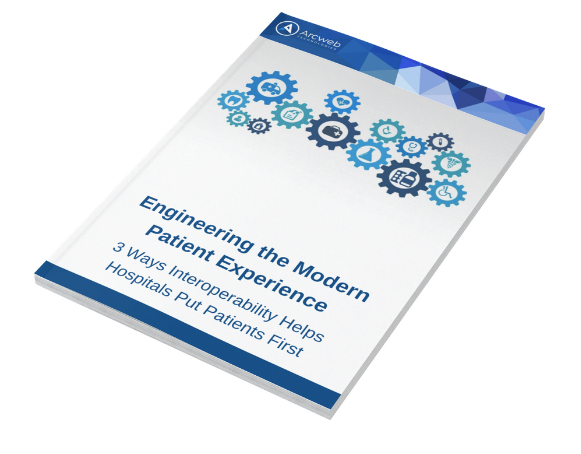Improving patient experience and interoperability are closely linked on the road to a better healthcare system. Both are essential to enhancing the patient’s relationships with their healthcare providers and producing better health outcomes. When it comes to advancing the healthcare space, efficient information sharing makes all the difference. Interoperability opens the doors for increasing access to healthcare, identifying social determinants of health, and better clinical results overall. The U.S. government agrees. The centers of Medicaid and medicare services enacted interoperability regulations in an effort to improve the usefulness of patient data. Now it’s up to health technology developers to ensure interoperability is a main priority for digital health applications.
We’ve created this whitepaper to paint a picture of what a truly interoperable future could look like and the potential impact it could have on the patient experience. It will highlight how improved information sharing can improve the quality of care, ease the administrative burden on health care workers, and even lead directly to better health outcomes. Improving the healthcare experience is a truly multidisciplinary challenge, but one with massive potential for transforming healthcare.
What is interoperability?
When a patient visits the doctor, a bevy of information is captured and stored in electronic format – diagnosis, symptoms, drugs prescribed, as well as basic info like height, weight, and blood type. In a perfect world, that information would be accessible to every other provider and medical institution that the patient might visit.
Unfortunately, that’s rarely the case. And the reason is a lack of interoperability – the inability of different healthcare information systems to communicate and share information.
That means that all too often, patients must fill out the same forms and answer the same questions at each new provider. Worse still, information about diagnoses and health conditions may never reach the full scope of medical providers caring for a patient, to say nothing of valuable diagnostic info left languishing in third-party mobile applications and telehealth services.
Why interoperability matters to patient experience
“Over 20% of patients never follow up on their doctor visits. And only 50% actually follow the doctor’s instructions.”
A lack of integrated EHRs hurts patient experience across the board. Not only are patients subjected to repeatedly giving their information, but they could miss essential details that affect the nature of their diagnosis or treatment. Additionally, patients need to be able to access their own info to take more control of their health.
Healthcare systems, such as ones that integrate with an EHR, can empower patients and healthcare systems by providing the information they need when they need it. Inadequate interoperability gets in the way of collaboration and innovation in so many ways. Missing information makes it harder for clinicians to realize key insights and make more informed, data-based deductions about patient communities. The overall quality of healthcare is stunted when healthcare providers can’t access essential patient information.
Arcweb has experience with developing interoperable software platforms and understands the importance of information sharing. In our white paper, we’ll demonstrate how improving aspects of interoperability like data sharing, data portability, and ease of access can enhance the healthcare space. Without interoperability, we’re missing out on a world of potential and blocking innovation that could help patient communities immensely.
What You’ll Learn
-
Why true interoperability is necessary for improving the patient experience
-
How interoperability can improve patient engagement
-
Why interoperability will empower patients to control their own healthcare



